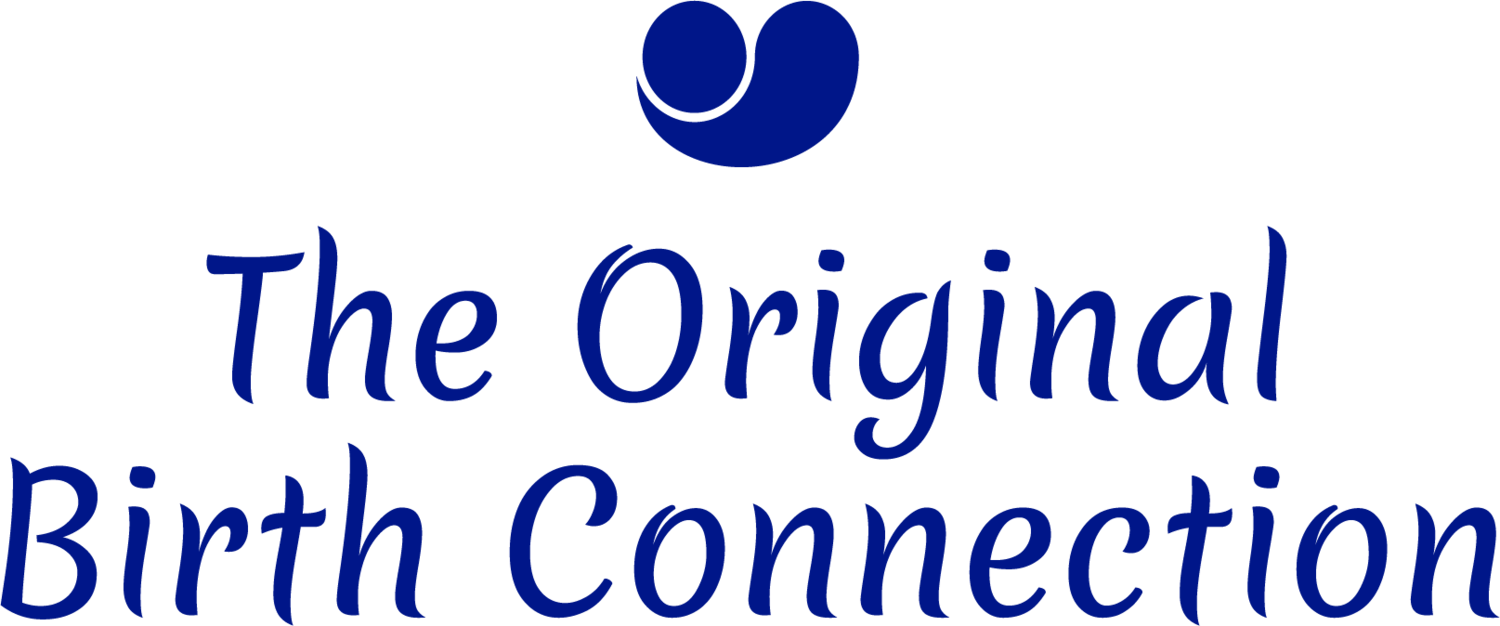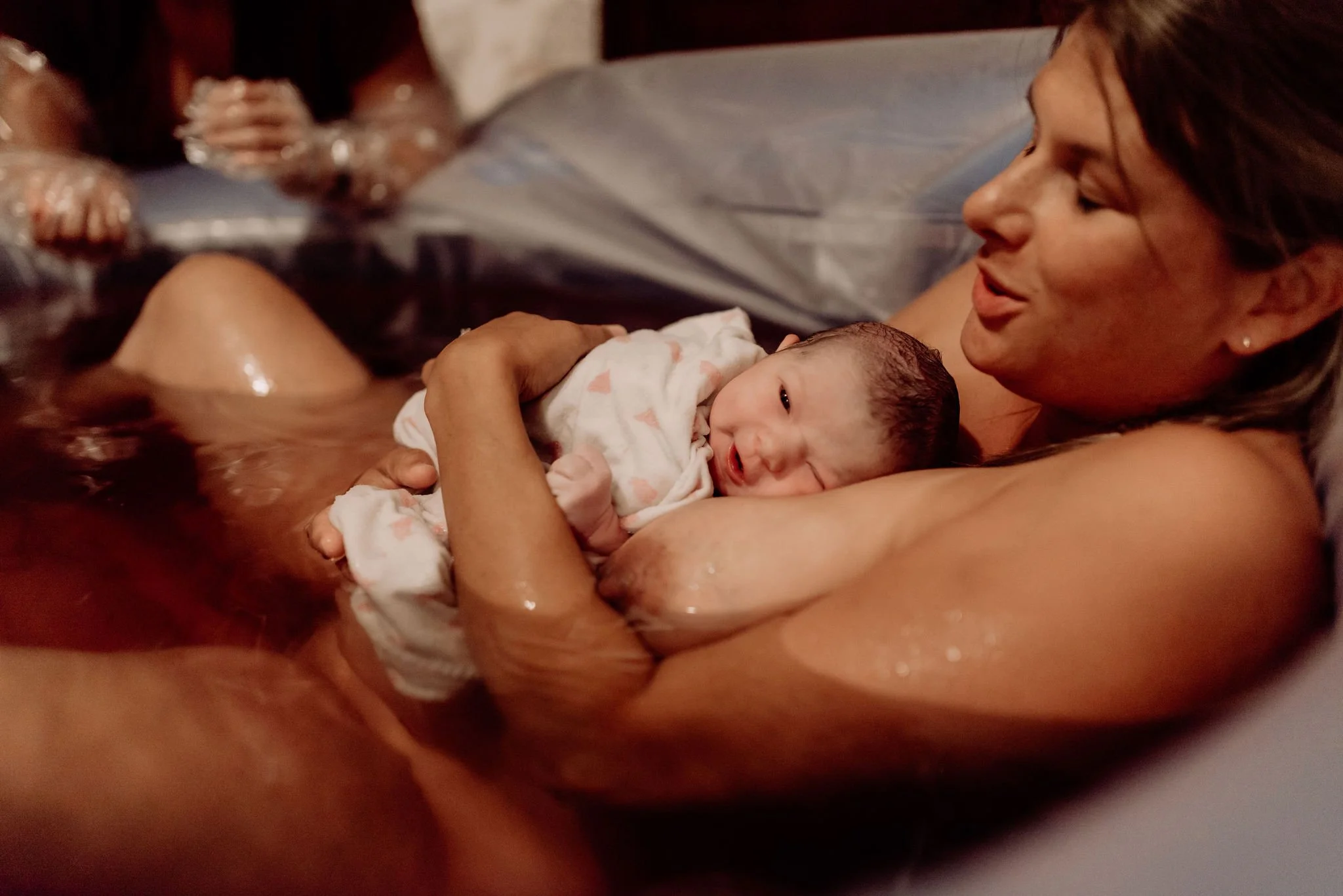The Pause
Pause and soak it all in.
I recently got to witness the most beautiful, powerful freebirth. It was in incredibly humbling experience to be present during such an incredibly transformative event.
But it also got me thinking - about several things. Firstly, and this is not the topic of this blog post, its no wonder that our induction rate, our instrumental delivery rate are so high because we have simply forgotten how to wait for birth and respect the wondrous hormonal processes that must occur in order for us to birth our babies in the the world.
Secondly, there was one very distinct aspect of this birth process that reminded me so much of my own first two births and births I've subsequently attended as a birth keeper. The pause.
When labour is discussed in public - in antenatal classes - on social media - and in popular culture. It is talked about as though its a linear process, one that gathers momentum and then keeps ascending (or descending - depending on how you view the process of labour) that once it starts, it keeps on rolling (like a train picking up speed).
But all too often I see a pause. Not just the pause that is often caused by the necessity for many parents of getting in the car and travelling to their place of birth, but pauses that in medical terms are usually considered a "stall" in labour. These pauses/ stalls are treated as problematic. Something needs to be done to "restart" labour. Medical professionals (midwives/ obstetricians) will be reaching for synthetic oxytocin drips at this point.
Birth workers (doulas/ birth keepers) can be just as guilty of trying to interfere though. We reach for clary sage (or some other form of "natural" intervention like acupressure, or biomechanics techniques).
But what I've often wondered is - what is the reason for the pause? And if these pauses can be seen so often in the birth process - is it in fact a natural part of the process. A means for mother/parent and child to rest and recalibrate?
I've seen pauses occur after very intensely grouped surges that don't form a linear pattern - what might be considered a labour dystocia. A series of surges that are perhaps enabling the baby to find a more beneficial position for birth. The body and baby work hard to find that position and then rest. Labour seems to have stopped. Midwives begin rustling paperwork and hunting in cupboards and muttering under their breath about what to do to "get things going".
I've seen pauses occur in long labours. Particularly in first time parents where they've labour steadily over days and nights (usually more intensely at night). They need time to rest and recalibrate before the final part of the process where they will need those final reserves of energy to make it through the final stage and meet their baby.
And I've seen pauses occur in fast labours as well.
Now there has been research done into these pauses, stalls, plateaus that occur so often in labour that concludes, "Physiological plateaus may be an essential mechanism of self-regulation of the mother-infant dyad, facilitating feto-maternal adaptation and preventing maternal and fetal distress during labor and birth."
https://onlinelibrary.wiley.com/doi/10.1111/birt.12607
Birth Power!
It all begins with an idea.
What a topic to kick off the start of 2022 within our weekly @clubhouse session in the Physiological Birth Room! (If you haven't joined us yet download the app and join us on Tuesdays at 8pm). You can also listen to the replays now if you're unable to make it on the night!
We had a fascinating discussion about what birth power is - is it a tangible thing - can you learn to have it - is it innate - do you just need to uncover it - and can people take your power, or can you give it up?
We heard from some incredible people - birth workers and those who had recently given birth describing what its like to have that power, to give away that power and to watch people in the birth space harness their power.
But, I want delve a little further into what birth power is and how can we as birth workers support birth power?
Birth power may conjure up images of warriors, roaring their way through birth, making all the noise and telling all the people exactly what to do, where to be and how to help them. It may also conjure up images of birthing women and people in their power in a pool, surrounded by fairy lights and silence as being in their power (see attached blog image). But I've also regularly witnessed in the birth space power that is quiet, self assured, and exercised in the most medicalised of births. Power that was unknown and suddenly discovered or power that is overwhelming for the birth person.
A simple, polite "No" that is evidently a full sentence. Leaving an environment that doesn't feel safe. The active choice to accept a Caesarean or any other form of medicalised birth in a way that is self assured and a conscious choice. The time it takes to educate oneself, to undertake a reflective practice during pregnancy to tap into our instincts and bond with our baby. The overwhelming sense of astonishment when you birth your baby and realise you did that!
Birth power can take many forms. It can also be taken from us in many ways. In a system that is still fundamentally patriarchal, medicalises pregnancy and tends to treat pregnant people as a list of symptoms rather than as conscious individuals, all too often have I witnessed healthcare professionals try to maintain that an individual has no voice, no choice in the care/ treatment they receive. Ultimately trying to strip them of the power they have to birth their babies.
So how do we as birth workers - doulas - birth keepers -midwives and obstetricians help birthing people realise and actualise their power? You can't empower someone, that power comes from within - but you may need to give it space - a safe, held space to begin to unfold, to be realised. Doulas are trained to do this. We learn how to hold space, how to enable people to realise they have choices, and they have instincts that they can follow. We do this through building trust during the antenatal period with our clients as we are after-all relationship based practitioners. We do this through listening ... really listening without ego to what birthing people want. We provide reassurance in moments of uncertainty and we celebrate the incredible transformation that mother, parent and infant all move through during the birth process.
I can't express just how incredibly moving and humbling it is to watch people step into their birth power, to realise they hold it within and to move through that transformation that is birth with grace, and strength and vulnerability and above all innate power.
LGBTQ+ history month and embodied birth work
Celebrating LGBTQ+ history month and the importance of embodying intersectional feminism in birth work
Welcome to February! Can you feel the earth beginning to stir?? I can't wait for those warmer, longer spring days!
February is also LBGTQ+ history month celebrating the LGBTQ+ community and its rich history, how far things have come and how much work there is still to do. I thought it would be a great opportunity to discuss the importance of embodying our intersectional approach to birth work, that we firmly centre here at The OBC.
2022 sees the 50th anniversary of the first Pride March in the UK in 1972. Whilst LGBTQ+ history month is focusing on politics through art I wanted to take this opportunity to focus on experiences of the LGBTQ+ community in creating their families and accessing maternity health care.
This month over on instagram I hope to be speaking with Laura from The LGBT Mummies Tribe, and sharing content from some LGBTQ account you'll really want to be taking a closer look at!
We know that "One in eight LGBT people (13 per cent) have experienced some form of unequal treatment from healthcare staff because they’re LGBT" (Stonewall LGBT in Britain Report 2021). Between 15-20% more same sex families registering babies year on year for the last decade. More people than ever before are identifying as LGBTQ+. From these two facts we can draw a correlation between the lack of consideration for LGBTQ+ parents in things like funding pathways for conception pathways on the NHS and the treatment the LGBTQ+ community report they are receiving as negatively affecting a their maternity experiences.
Birth workers - midwives - doulas - birth keepers - play a key role in providing physical and emotional support during the perinatal period, a time when pregnant people can feel at their most vulnerable. So how do we ensure we embody intersectional feminism in the work that we do and ensure that everyone who experiences pregnancy and birth is treated with the kindness, dignity and respect they deserve?
Three things - representation, accessibility and our practice.
Representation is incredibly important. We need to see and elevate the voices of the LGBTQ community in pregnancy healthcare. There are plenty of LGBTQ birth workers and midwives working hard to do this and its important that we acknowledge and recompense the work they do. If you're not part of the LGBTQ community but are a safe space then its important that the services are reflective of this. Use LGBTQ imagery in your social media/ marketing. Not just once in a blue moon but regularly and respectfully (The LGBTQ community are already often hyper sexualised and don't need this from birth workers as well).
Language. It creates endless debate but no one is trying to erase anyone by using language that creates an inclusive space for members of the LGBTQ community. Pregnant people does not erase women - because women are people. Want to be more direct? How about "birthing women and people", after all not all women want to be defined simply for their reproductive ability. Breastfeeding and chestfeeding - or simply infant feeding or lactation are all phrases which are inclusive and indicative of how we feed our babies.
Ensuring that this language is used throughout our marketing materials, and in all those pesky forms that need to be filled out when engaging with NHS services - more that two tick boxes for male/ female, including more space for parenting definitions - mother and father may not be enough and usually come with specific biological connotations. Give space for people to express how they would like to be referred to and what relationship they have to the child is important.
Treat people as individuals - in practice not simply in words. Ensure you ask respectful, open ended questions.
Don't be an ally in words alone - ensure your actions are in allyship as well. And don't not try. The learning is on going. I happily identify as a member of the LGBTQ community and am still learning everyday. tself. It always does.
Scope of practice and autonomy in birth work
What is a doula's or birth worker's scope of practice and what does it mean to work in our autonomy in a medicalised, patriarchal system?
What is a doula's or birth worker's scope of practice and what does it mean to work in our autonomy in a medicalised, patriarchal system?
We often talk about doula support in terms of providing information, physical and emotional support. But is this enough in the modern maternity system and does this truly encompass what for many feels like their true scope of practice when they choose to work in their autonomy.
You can always tell when you meet a midwife who is secure in their power and knowledge, they are self assured, gentle and patient. They are totally expert at putting the birthing woman/ person at ease. And they don’t feel threatened by the presence of a doula/ birth worker/birth keeper. We work together supporting the incredible dance of birth.
But what about doulas/ birth workers/ birth keepers working in autonomy?
It’s all too easy for us to throw our hands up and say, “oh but I don’t do anything medical”, like because of this our presence is some how unnecessary, unimportant and has little impact on the birth process. This can also make us complicit in a paternalistic, medicalised system. Sit with that for a moment because it’s is bloody uncomfortable.
What is the point in your presence at that birth if not to help protect that birthing persons desire for the birth to unfold as they wish (which in the majority of cases is physiologically).
What is the point of your presence if you throw your hands up in the air afterwards and say ‘there’s nothing I could have done”, when we know that the cocktail of hormones needed to elicit labour is impacted massively by the people present in the birth space. I know I have done exactly this in years gone by - when I’ve felt impotent.
Now some births, a very small percentage truly require expert medical intervention to save the life of mother/ parent and child. And thank goodness for incredibly talented obstetricians and midwives.
But how often do we, as birth workers, see interventions that are completely unnecessary, enacted from a place of fear (risk aversion)? How often do you as a doula, yoga teacher, antenatal teacher, hypnobirthing teacher think “what the hell happened” after the months of prep work you enabled that mother/ parent to put into their birth preparation for it all to unravel at the 99th hour.
What is happening in during people's pregnancy journey's and in the birth space that leads to an induction rate of nearly 50% in this country? Iatrogenic harm being caused to parents. PTSD experienced by up to 14% a parents (a rate higher that soldiers returning from combat). Are we certain that despite achieving the miracle of pregnancy and carrying that healthy baby to term nearly 50% of birthing women and people require medical intervention to get that baby out again?
If you are going to step into birth work and call yourself a doula/ birth worker/ birth keeper/ birth coach know this... the impact you have on that birthing woman/ person is profound. You never forget your birth and who was involved.
Your talent lies in building rapport and trust so as your client nears birth you can support the flow of oxytocin because you help that mother/ parent to feel safe, secure, loved.
You trust the process that their body is going through implicitly because you understand exactly how it works and why.
You stand in your autonomy and they can feel it.
You work for them and no one else.
You can’t prevent a medical emergency unfolding but you can help prevent unnecessary intervention through the work you do antenatally; discussing how the maternity system works, what kind of things they can expect to be offered (coerced into) and why so there are no surprises, explain the hierarchy of intervention, what it can be like birthing in a medicalised setting, how to advocate for what they want and how their body works with their baby, enabling their baby to be born when this is facilitated by patient, confident care providers.
You work with your client to build their trust in the incredible transformative but completely normal process their body will move through to birth their baby.
Do not under-estimate your power or do your clients a disservice by lacking the understanding and confidence to facilitate physiological birth.




